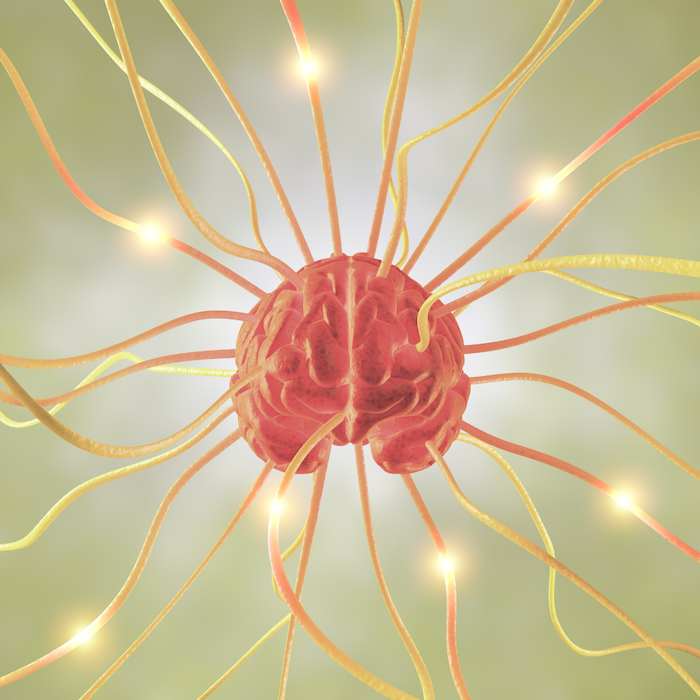If there’s one plant that keeps proving itself year after year, it’s hemp.
Back in the early days of CBD, hemp was treated like a “niche” wellness ingredient — something only health-nerds and early adopters talked about.
But now?
Hemp has fully entered the mainstream.
In 2025, we’re seeing a wave of new research showing how the entire hemp plant — not just CBD, but CBG, CBN, terpenes, and even nutrient-rich hemp seed oil — supports everything from stress regulation and sleep cycles to skin health, recovery, and inflammation balance. And as the world becomes more fast-paced, more digital, and frankly, more stressful, people are turning to hemp for something we all desperately need: full-body balance.
What makes hemp unique is its range. It’s one of the rare plants that can support your mind, your body, and even the planet. And with new formulations, better extraction methods, and a deeper understanding of the endocannabinoid system (ECS), hemp isn’t just a trend anymore — it’s becoming a daily essential.
In the next sections, we’ll break down the top five benefits of hemp in 2025 and why this ancient plant is more relevant now than ever.
1. Hemp Supports a Calmer, More Balanced Nervous System

One of the standout benefits of hemp in 2025 is its ability to support your nervous system, helping you feel more grounded, calm, and resilient in a hectic world.
Why this matters
Our bodies use a complex signalling network called the Endocannabinoid System (ECS). The ECS helps regulate mood, stress responses, emotional processing, sleep, pain, and more. [1]
When this system is in balance, you’re better able to adapt to stress and avoid the “high-anxiety/constant alert” loop modern life often triggers.
How hemp plays its role
- Hemp plant compounds (cannabinoids like CBD, CBG, and supportive terpenes) interact with the ECS and related pathways to help regulate stress responses.
- Research shows that when the ECS is disrupted (for example by chronic stress), emotional regulation and mood are thrown off. A study found endocannabinoid signalling is essential for stress adaptation — animals with disrupted cannabinoid receptor signalling showed exaggerated stress responses. [2]
- A newer study explains how endocannabinoids regulate specific neurons in the brain’s reward circuit to moderate stress and motivation. [3]
- More broadly, a 2025 review of cannabinoids and the ECS found they modulate circuits in the brain linked to the hypothalamic–pituitary axis — the system that governs stress hormones. [4]
Real-world benefit
This means that a well-formulated hemp supplement (or full-plant extract) can help you face everyday stress with more ease. Instead of being hijacked by anxiety, overthinking, or emotional reactivity, you may experience more calm, clearer thinking, and better capacity to “bounce back.”
Key points to mention
- Stress in 2025 looks different: nonstop digital stimulation, screen fatigue, blurred work-home boundaries. The ECS is more “called upon” than ever.
- Hemp offers not just one compound (like CBD), but a full plant approach, which may support multiple facets of stress regulation (mood, sleep, nervous tone) simultaneously.
- When sourcing, look for broad or full-spectrum hemp extracts (with cannabinoids and terpenes) to maximize nervous system support.
2. Hemp Enhances Sleep Quality Through Multiple Pathways
Getting truly restorative sleep in 2025 is harder than ever. Between blue-light exposure, stress, irregular schedules, and pre-bed screen scrolling, our sleep systems are under siege. Enter hemp — offering a natural way to support sleep, thanks to how its cannabinoids and compounds interact with your body’s sleep architecture.
How hemp helps sleep
- Hemp-derived cannabinoids (such as Cannabinol (CBN), Cannabidiol (CBD), and combinations including low-dose Tetrahydrocannabinol (THC)) have been shown to influence both sleep onset (falling asleep) and sleep maintenance (staying asleep).
- These compounds support the nervous system and also directly influence sleep-regulating pathways — for instance, by increasing adenosine (a “push to sleep” chemical) and calming overactive arousal systems. [5]
- More recent research suggests the entire hemp plant matrix (cannabinoids + terpenes + minor compounds) may enhance the “entourage effect,” which could improve how effectively you fall into deeper, more restful sleep.
📚 Recent research highlights
- A pilot-trial (2025) found that adults with sub-threshold insomnia who took a hemp-derived cannabinoid supplement (CBD + CBN + THC + terpenes) had significant improvements in sleep latency (time to fall asleep), total sleep duration, and overall sleep quality compared to placebo. [6]
- A 2025 meta-analysis found that cannabinoids significantly improved sleep quality versus placebo in people with insomnia. [7]
- A long-term study from September 2025 following insomnia patients treated with hemp-based products revealed sustained improvements in sleep quality, mood, and pain management over 18 months. [8]
✅ Why this matters for your sleep in 2025

- In a hyper-stimulated digital age, your body’s natural sleep signals are muted — hemp helps restore them.
- Whether your sleep problems are from stress, racing thoughts, pain, or general life chaos, hemp gives a multi-pathway support system (nervous system, adenosine and arousal regulation, cannabinoid receptor balance).
- Because hemp supports deeper sleep phases (NREM/REM) and better continuity of sleep, you wake feeling more refreshed, less groggy, and more “body ready” for the day.
🔍 Key points to remember
- Not all hemp or cannabinoid products are equal — full-spectrum extracts and products with terpenes tend to show stronger effects than isolates.
- Dosing, timing, and quality matter: Taking hemp products about 30-60 minutes before bed (in a relaxed routine) tends to yield better results.
- Sleep hygiene still matters: Use of hemp works with healthy sleep practices (dark room, cool temperature, no screens) rather than replacing them.
- For best results: look for formulas that support both falling asleep and staying asleep.
3. Hemp Reduces Everyday Inflammation and Supports Pain Relief
Chronic, low-grade inflammation has quietly become one of the biggest wellness challenges in 2025. Whether it’s lingering muscle soreness, joint stiffness, post-exercise ache, or nagging body tension from long hours at a desk, inflammation is the hidden culprit. That’s why hemp — with its unique blend of cannabinoids, terpenes and whole-plant compounds — is so interesting: it offers broad-spectrum support for both inflammation and pain.
How hemp works in this space
- The body’s inflammatory response is regulated by many systems, but the Endocannabinoid System (ECS) plays a key role by interacting with immune cells, inflammatory signalling pathways, and pain-sensing nerves. For example, CB2 receptors (found on immune-system cells) are involved in modulating inflammation. [9]
- Hemp compounds (like CBD and other lesser-known cannabinoids) reduce the release of pro-inflammatory cytokines and help inhibit markers of inflammation. One recent study found that selected cannabinoids and terpenes demonstrated measurable anti-inflammatory activity in vitro. [10]
- For pain relief, hemp interacts with ECS receptors and also modulates pain signalling. A 2025 review found that cannabinoids show moderate efficacy in managing conditions like neuropathic pain and fibromyalgia by reducing both inflammation and pain-signal transmission. [11]
- In specific inflammatory conditions: a 2024 meta-analysis found that cannabinoids were associated with improved quality of life and reduced disease activity in people with inflammatory bowel disease (IBD). [12]
Real-world benefits you’ll notice
Using a well-formulated hemp product can help you experience:
- Less general body ache or stiffness after long days or workouts
- Reduced soreness and faster recovery from movement or exercise
- Fewer “foggy-body” days when your joints or muscles feel heavy or achey
- A calmer baseline—so you’re less reactive to small flare-ups of inflammation
Why this matters more in 2025
- Modern lifestyles—sedentary work, repetitive movement, screen time, poor posture—mean our joints, bodies and tissues are under constant micro-stress.
- Traditional pain-relief options (NSAIDs, frequent medications) come with long-term risks; hemp offers a gentler “daily support” alternative.
- Because hemp affects both inflammation and pain signalling (not just one or the other), it fits well with the “whole-body” health perspective that’s trending now.
Important to know
- While the evidence is promising, hemp is not a miracle cure: many studies note moderate effects and call for more high-quality trials.
- Quality matters: Full-spectrum hemp extracts (which include cannabinoids + terpenes + plant matrix) tend to show better outcomes than isolates alone.
- Pair with movement and lifestyle: Even the best hemp product works better when you’re also addressing posture, diet (anti-inflammatory foods), sleep and stress.
- If you have a serious inflammatory or pain condition (e.g., autoimmune disease), speak with your healthcare provider before assuming hemp alone will suffice.
4. Hemp Is a Skin + Bodycare Powerhouse
Your skin is your body’s biggest organ, and in 2025 more people are turning to hemp—not just as a supplement, but as a key ingredient in skincare and bodycare. From seed-oil moisturisers to cannabinoid-infused serums, hemp offers a rare combo: nutrient-rich lipids + cannabinoid support for skin health.
How hemp supports skin health
- The seed oil of Cannabis sativa (hemp seed oil) is packed with essential fatty acids—especially linoleic acid (omega-6) and alpha-linolenic acid (omega-3). These fats help strengthen the skin’s barrier, lock in moisture, and support healthy cell membranes. [13]
- Cannabinoids like CBD and other hemp-derived compounds have shown anti-inflammatory, antioxidant, and skin-healing properties in human studies. [14]
- Hemp seed oil and cannabinoid blends may help regulate oil/sebum production, calm redness, support wound healing (micro-injuries) and soothe skin under stress (pollution, blue-light, digital fatigue). For example, a 2025 wound-healing study found hemp seed oil accelerated new skin growth and improved blood flow compared to a conventional ointment. [15]
Real-world benefits you’ll notice

Using quality hemp-based bodycare or skincare gives you:
- Softer, more supple skin thanks to better barrier function and hydration
- Reduced visible redness, irritation, and flare-ups — especially if you’re prone to reactive skin
- Balanced oil production — many users report less shine in tricky zones (especially those with combination/acne-prone skin)
- Faster recovery from minor skin stressors — say, post-workout heat, sun exposure, or a busy travel day
- A “cleaner” skincare profile — hemp seed oil and cannabinoid-infused topicals are increasingly favoured over heavy chemicals
Why this matters more in 2025
- We’re living in a high-stress, high-screen, high-exposure environment: pollution, UV, infrared, blue-light and indoor heating all stress the skin barrier. Hemp supports resilience.
- Consumers are demanding dual-purpose ingredients: skincare that not only moisturises but also delivers active wellness benefits. Hemp bridges the gap between skincare and “inner-health” formulas.
- With more data emerging on topical cannabinoids and seed-oil lipids, hemp is moving from “cool trend” to core ingredient in modern regimens.
Things to keep in mind
- Look for cold-pressed, minimally refined hemp seed oil (so the fatty acids and nutrients remain intact).
- In cannabinoid topicals, full-spectrum hemp extracts + terpenes seem to show better synergy compared to isolated cannabinoids alone.
- As always, patch-test first — though hemp is well tolerated, any active skincare component can cause reactions on sensitive skin.
5. Hemp Is One of the Most Sustainable Crops on Earth
Hemp isn’t just good for your body — it’s one of the most eco-friendly plants we have. In 2025, sustainability matters more than ever, and hemp stands out as a crop that supports both human health and planetary health. From soil regeneration to plastic alternatives, hemp is leading a quiet environmental revolution.
Why hemp is a sustainability superstar
- Hemp grows fast and with minimal resources.
Hemp can mature in as little as 90–120 days and requires significantly less water than cotton or many industrial crops. A major benefit: it thrives without heavy pesticide use due to natural pest resistance. [16] - Hemp captures more carbon dioxide per acre than most trees.
A 2022 analysis published by the European Industrial Hemp Association found that industrial hemp can sequester 8–15 tons of CO₂ per hectare, surpassing many forestry crops. [17] - Hemp regenerates soil — literally rebuilding land as it grows.
Hemp’s deep root system helps prevent soil erosion and breaks up compact soil for future crops. It also removes toxins through phytoremediation (the same process that was used on contaminated soil near Chernobyl). [18] - It replaces environmentally harmful materials.
Hemp fiber is now being used as an alternative to plastics, cotton, wood, and even concrete. “Hempcrete,” made from hemp hurd and lime, is ultra-insulating, long-lasting, and has a carbon-negative footprint. [19]
Real-world impact in 2025
Choosing hemp over conventional materials or ingredients helps:
- Reduce reliance on fossil-fuel-based plastics
- Cut down water waste
- Improve soil health
- Lower carbon emissions
- Support regenerative farming practices
- Move industries (construction, textiles, wellness, food) toward greener production
Consumers are no longer choosing hemp just for personal benefits — they’re choosing it for planetary resilience, a powerful driver in 2025’s eco-conscious world.
Why this matters more than ever
- Climate pressures are pushing both governments and consumers to adopt more sustainable crops.
- Hemp provides multiple products from a single plant: fiber, oil, protein, cannabinoids, textiles, building materials, bioplastics, food, and skincare ingredients.
- Few crops offer this kind of closed-loop, low-waste lifecycle.
- As sustainability becomes a central value in wellness, hemp’s environmental profile makes it one of the most future-proof crops available.
Key takeaway
Hemp isn’t just a wellness trend — it’s part of a broad shift toward greener living. In 2025, choosing hemp means supporting your health and helping protect the planet at the same time.
Why Hemp Is More Essential Than Ever in 2025
From calming your nervous system to enhancing sleep, easing inflammation, nourishing your skin, and even helping the planet, hemp has proven itself to be so much more than a wellness trend. It’s one of the few plants that can support your mind, body, and environment at the same time and the science behind it just keeps getting stronger every year.

In 2025, people want cleaner ingredients, deeper benefits, and products that fit naturally into their daily routine. That’s exactly where hemp shines. Whether you’re looking to stress less, sleep better, soothe discomfort, support recovery, or switch to cleaner bodycare, hemp gives you a modern wellness toolkit built from one remarkable plant.
And if you’re someone who already appreciates what hemp can do for you, this is the perfect time to explore more.
All of our USA-made hemp products — including our wellness formulas, our cannabinoid blends, and even our plant-powered bodycare — are designed to harness the natural power of the whole hemp plant, using clean ingredients you can trust every day.
If you’re ready to experience the full spectrum of what hemp can offer, you can browse our entire collection below and find the product that best fits your routine.
>> Explore all of our hemp-based products here
Because when it comes to taking care of your body, your mind, and even the world around you… hemp is one of the best places to start.





